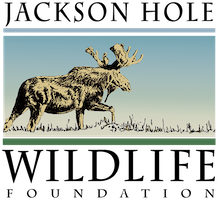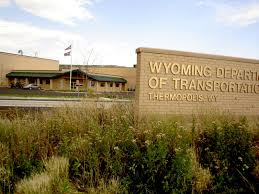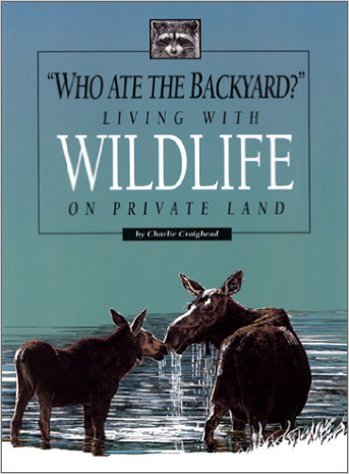
by jhwildlife | Feb 10, 2016
Who Ate the Backyard? is a handbook for homeowners living in the Rocky Mountain Region. Who Ate the Backyard? explains how to attract, avoid, or simply live in peace with the animals that inhabit the same places we do.
Author Charlie Craighead describes the habits of bear, moose, porcupine, weasels, rodents, deer, and birds as they interact with humans near our homes, and how we can help the wildlife around us.
Published by the Grand Teton Natural History Association and Jackson Hole Wildlife Foundation in cooperation with Grand Teton National Park.
You can purchase a copy online through the Grand Teton Association here.
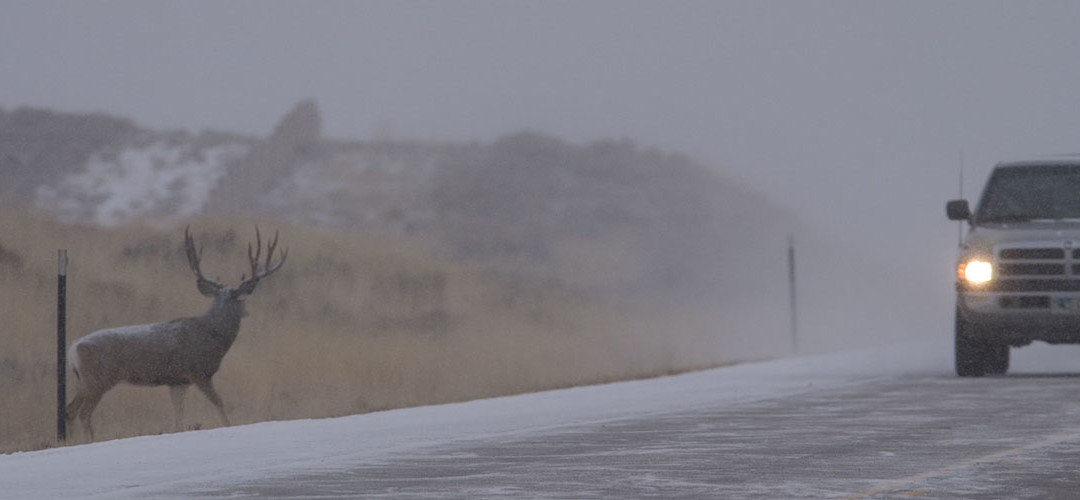
by jhwildlife | Feb 10, 2016
In Teton County, accidents between vehicles and wildlife kill hundreds of animals each year including moose, elk, deer, bison, wolves, pronghorn, bear, and uncounted numbers of small animals and birds. These accidents are also costly to people – with over $2 million a year in expenses for car repairs, personal injuries, disability, and death. You can help yourself and wildlife in Teton County to avoid accidents by following a few simple rules:
1. Be alert and drive for the conditions. Most accidents happen at times of low visibility – dawn, dusk, night time or in bad weather.
2. Watch for our electronic warning signs. These signs are put in places where we know animals are or have recently been crossing the road. They’re not just generic warnings – when you see these signs, watch carefully for wildlife.
3. When you see wildlife – Slow Down. If you see one animal cross the road, it is very likely more are close behind. Animals near the road are not waiting for us to pass by – expect them to do something unexpected, like dash in front of your car.
4. In winter, wildlife often use roads to move about – it’s easier than walking through deep snow. But, sometimes they get onto a road and can’t find a quick place to get off. Give them a brake. Be patient and give them time to find a place to get off the road.
5. To protect yourself and your passengers, experts advise that you should not swerve off the road to avoid hitting an animal.
Remember, the opportunity to see wildlife is one of the special gifts of living in Jackson Hole. Let’s all “Drive for Wildlife” to make sure we get to keep seeing them now and into the future.
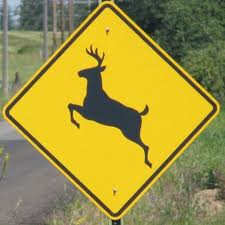
by jhwildlife | Feb 10, 2016
Give Wildlife a Brake begins with an analysis of WYDOT roadkill data and determination of roadkill hotspots, enabling WYDOT to place wildlife crossing signs.

by jhwildlife | Feb 10, 2016
The Jackson Hole Wildlife Foundation (JHWF) is founded to promote ways for our community to live compatibly with wildlife.

